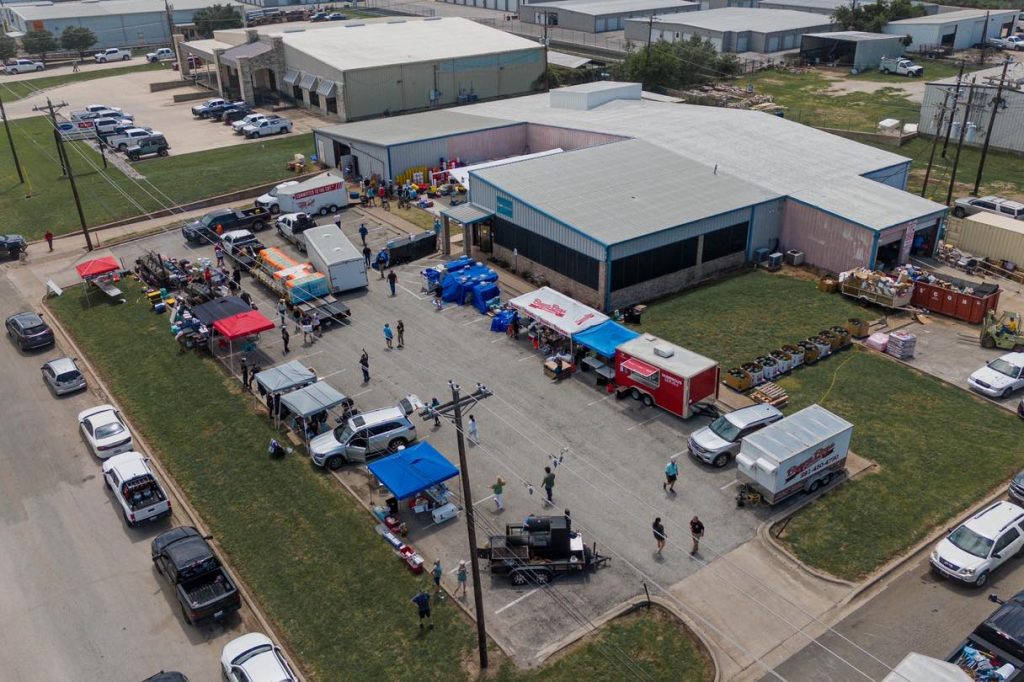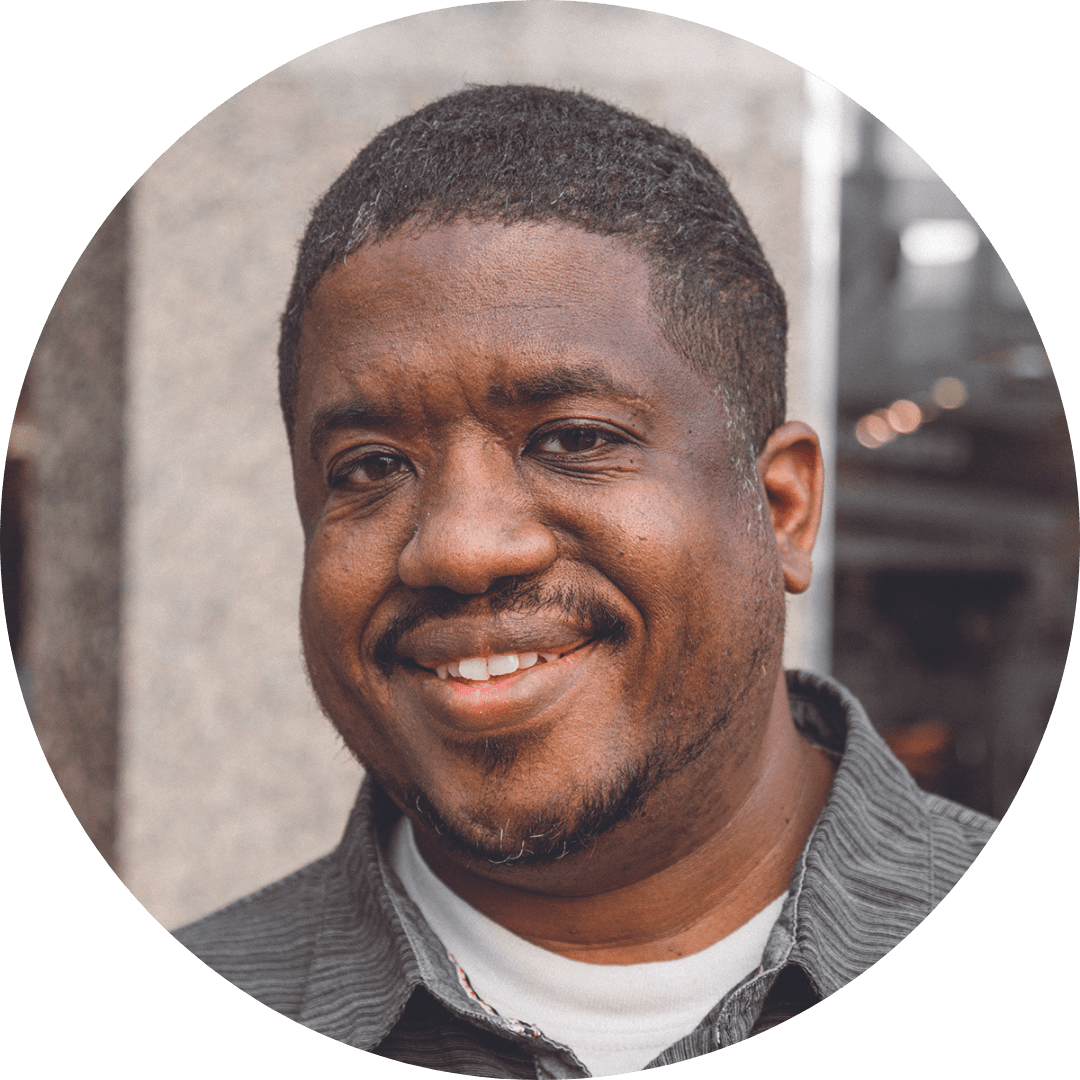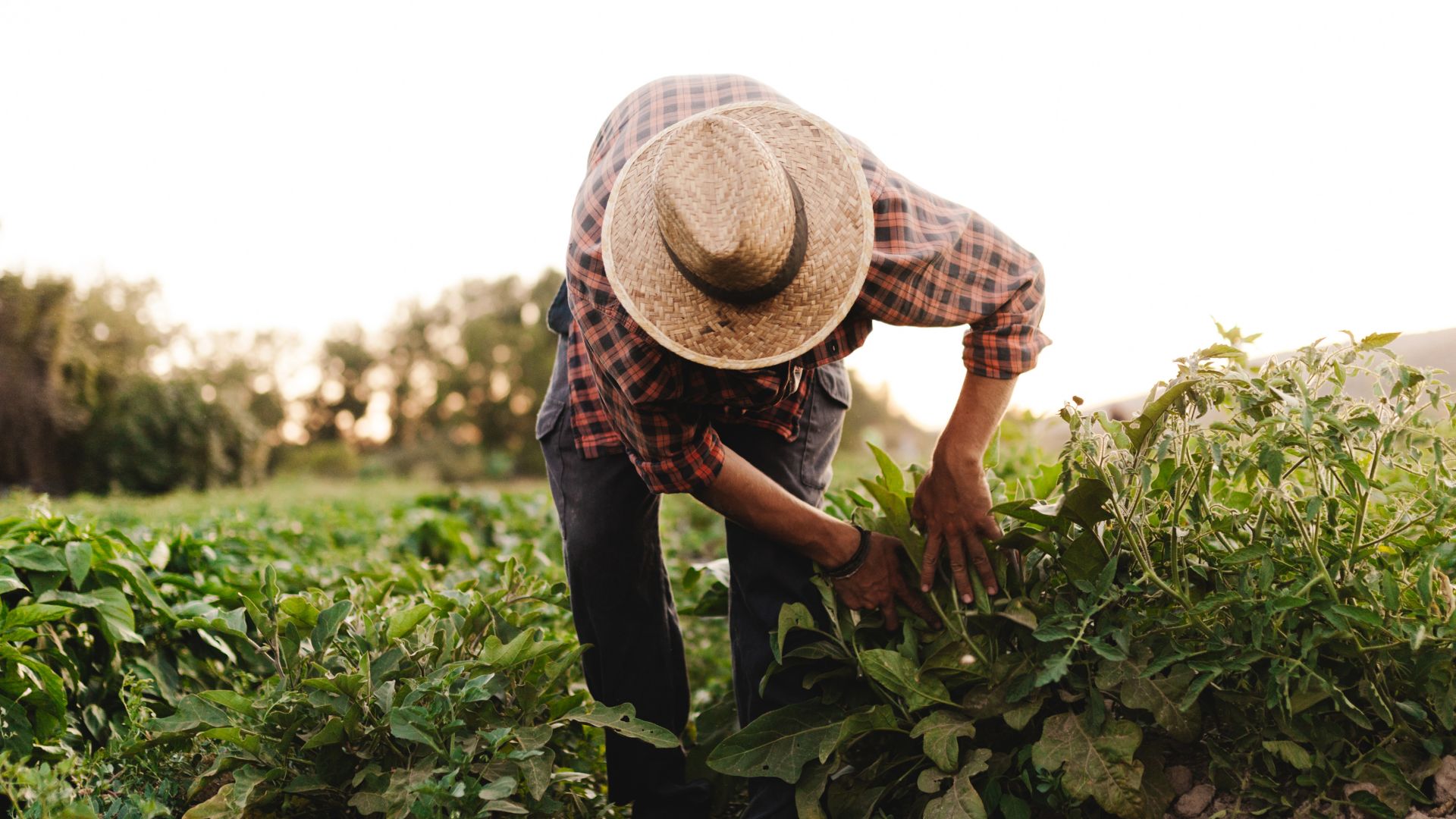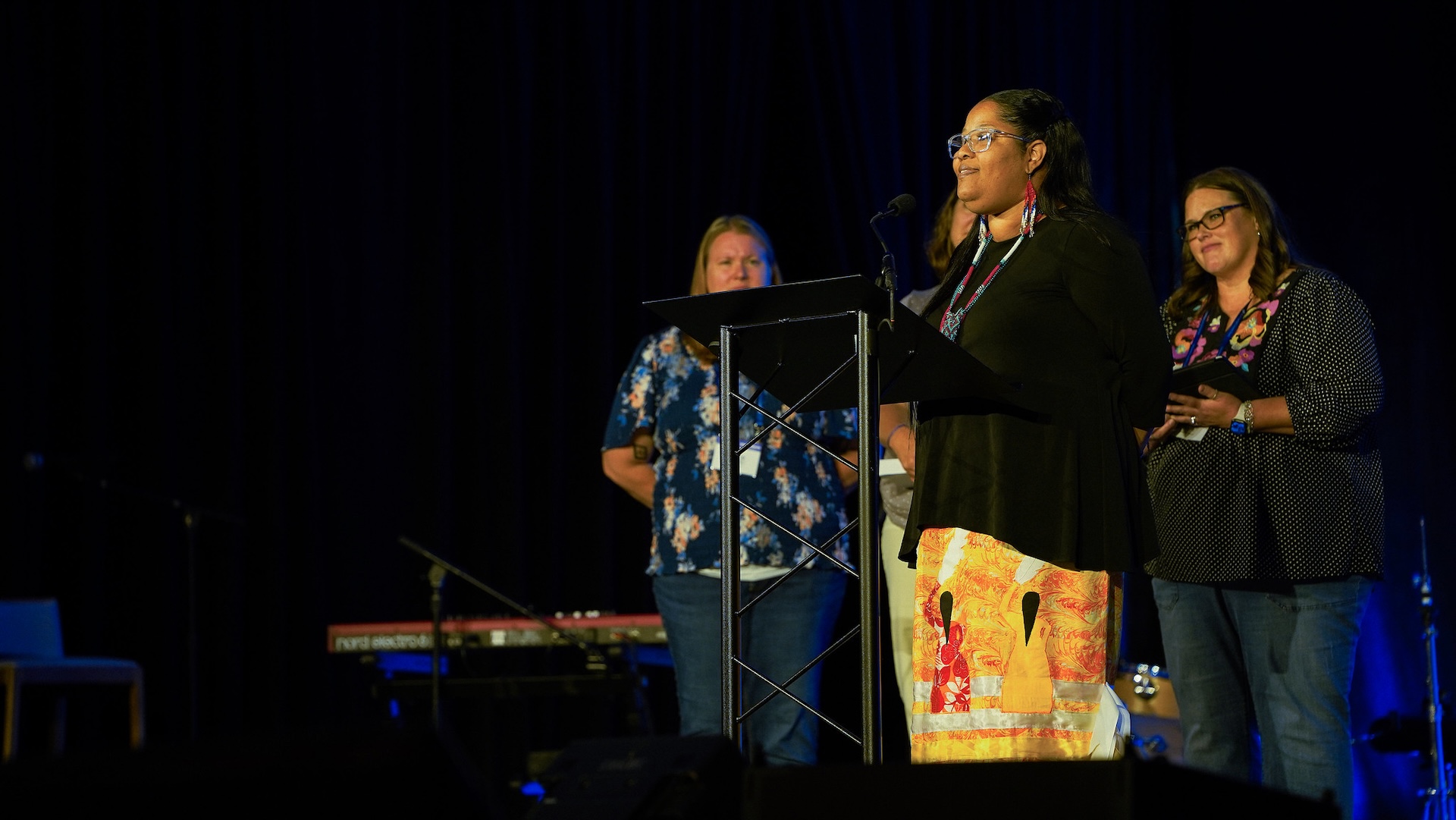Texas Flood Recovery Interview of Highland Lakes
An Interview with the leaders of Ark of Highland Lakes
by Jelani Greenidge | July 28, 2025
The Evangelical Covenant Church, through its Love Mercy, Do Justice ministry priority (LMDJ), is partnering with the community organization Ark of Highland Lakes to respond to the devastation wreaked by the recent extreme flooding in Texas. Missional storyteller Jelani Greenidge had a virtual sit-down with the leaders of Ark of Highland Lakes to discuss the vital nature of their work. As you take in their story, please consider giving to the Domestic Disaster Response fund, which enables LMDJ to partner with organizations on the ground when disasters happen. This conversation was edited for length and clarity.
Tell me about your roles and what you do at Ark of Highland Lakes.
RACHEL: I’m Rachel Naumann, Director of Operations here at ARK. I’ve been here for about seven or eight years, pretty much since the beginning. My husband, Kevin, is the Executive Director. We actually started ARK in 2018 after another big flood hit our area. At that time, I was working for Marble Falls Area EMS as operations director and was put in charge of volunteers and disaster response from the Emergency Operations Center. We turned to local churches for help and realized the immense power of churches working together, the power of everybody just trying to uplift each other. Our organization was founded on that concept.
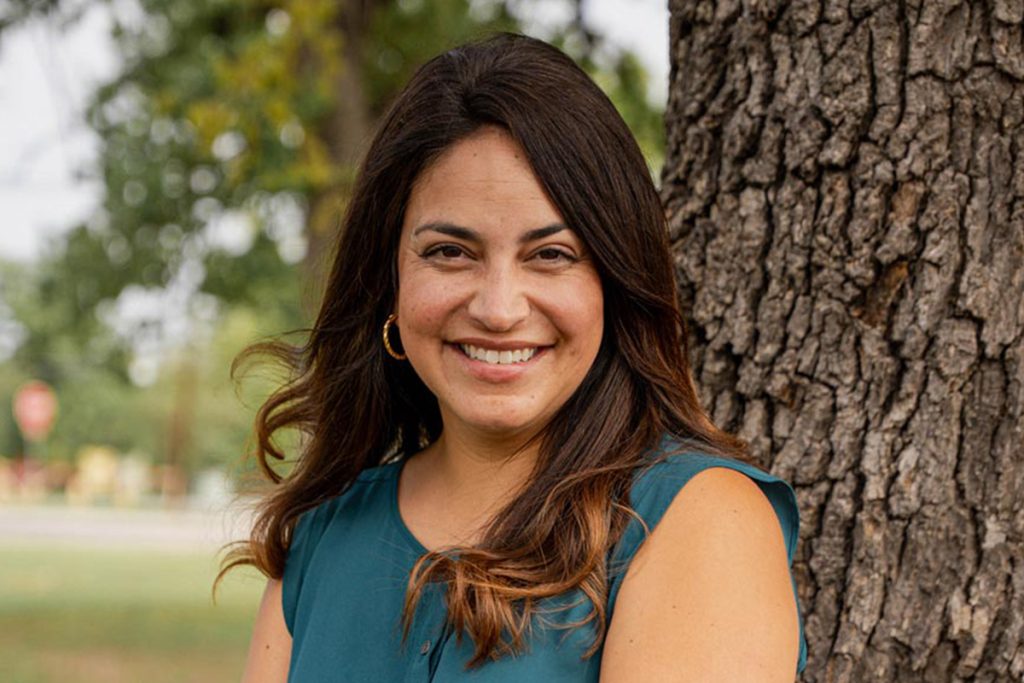
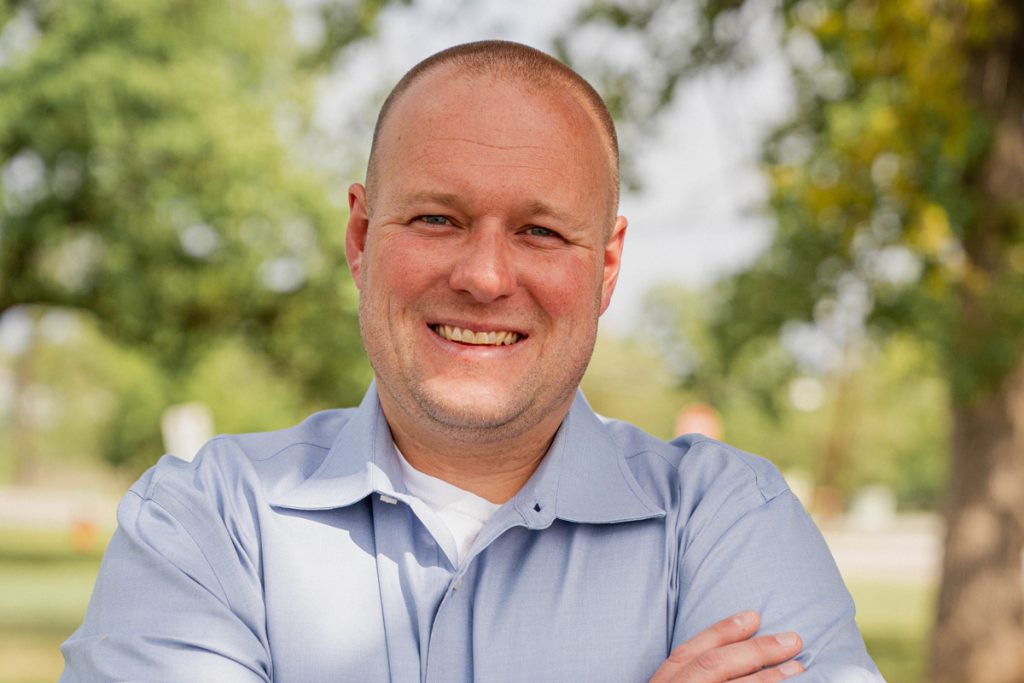
KEVIN: Over the years, we’ve applied this model to many opportunities, with childhood poverty being one of our biggest targets for changing generational cycles of poverty. However, the core idea of being ready to respond to the next big event, having built trust and relationships, has always been there. I was on the board initially, and have been the executive director for about eight years. Our mission is to unite churches to provide refuge and reveal God’s love through action, walking alongside vulnerable neighbors from crisis to lasting transformation. We thrive on deploying people into their skill sets to go out and serve people better.
Can you give me some background on the scope of this most recent set of floods, and how it compared to what happened in 2018?
KEVIN: Our organization is located in Burnet County, which is about an hour from Kerr County, where the major flooding happened. However, our area was also pretty heavily impacted. We are currently dealing with 380 families affected, and unfortunately, there have been six fatalities locally, plus one local Fire Chief still missing. The severe rain and flash flooding across multiple Texas counties claimed over 100 lives and devastated entire communities, with more than 30 campers and counselors lost at a Christian girls’ camp.
This flood was quite different from 2018. The 2018 flood mainly affected lakefront homes, often with insurance, so we could help rebuild or remodel with the help of their insurance. This time, it largely targeted homes already in poverty. We’re seeing RVs and cars completely washed away, which will require
significant financial support to repurchase. It’s a much bigger financial challenge for us to help people regain stability.
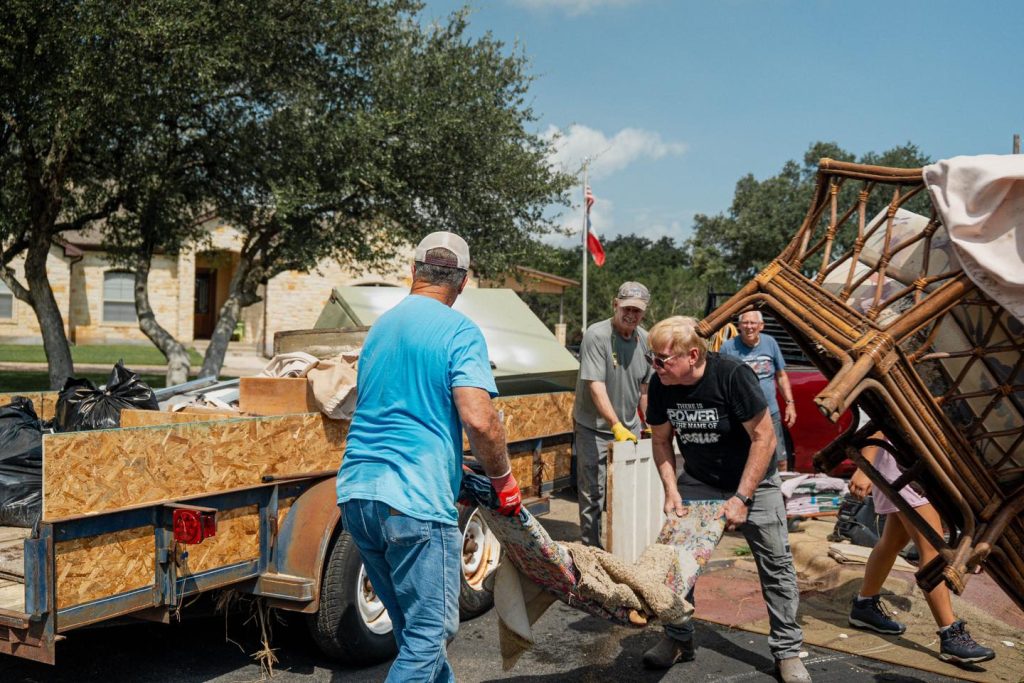
As someone not familiar with flash floods, can you describe the timeframe of how quickly things escalated?
KEVIN: It happened in the middle of the night, so people were asleep and didn’t realize the severity, initially thinking it was just raining. The estimates for the Guadalupe River in Kerrville show it rose an astonishing 26 feet in 45 minutes on the 4th of July. It’s been described as an “inland tsunami”. Normally, dry creek beds become walls of water. We had 12 to 15 inches of rain within just a couple of hours. There’s nowhere for the water to go except into these wet weather creeks, catching people off guard, especially those living in RVs or homes near them. You barely have time to get yourself out.
Did this disaster personally affect your family or team members?
KEVIN: Luckily, our personal home wasn’t impacted this time. However, in 2018, our family’s house on one of the flooded lakes was affected, even with insurance. That experience showed us the immense burden, especially for those already struggling. If you’re wondering where your next meal comes from, and then everything you own is washed away, you can lose hope quickly. For us, meeting physical needs in the moment provides a huge opportunity for spiritual conversation and showing God’s love.
Some of our team members did experience loss this time; one lady lost rental cabins that were her family’s sole source of income. Yet, in these moments, we also see the best in people rising up to help. It is truly an unthinkable tragedy that happened down there in Texas.
What has Ark of Highland Lakes been doing to meet this overwhelming set of needs?
KEVIN: In the initial 24 hours, we opened a shelter here in the area to provide a safe, dry place for those whose homes were completely washed away. Once we found longer-term solutions like hotels or family accommodations, we shifted our focus. Our large warehouse became the donation hub for supplies – whether food, mudding out supplies, or cleaning supplies. We have received a remarkable amount of physical donations.
Here in our office, we’re doing the case management piece. We are a long-term recovery organization and will be in this for the long haul. We’re bringing all 380 affected families into our office to gather information and figure out how to help them regain stability over the next year to year and a half. As of now, we have 300 cases established that will require long-term support, and this list is growing by the hour. Many impacted families have no insurance or support, highlighting the need for continued financial donations. We also organize muck-out teams, with training sessions and deployments following authorization by emergency services.
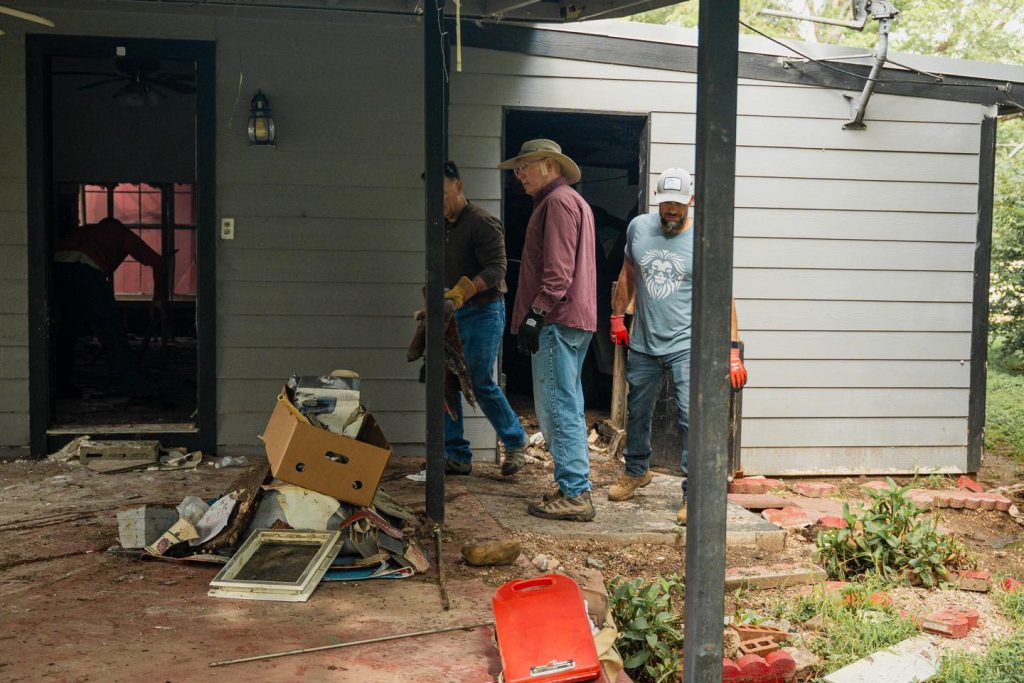
What does the trajectory look like for rebuilding a life after such a cataclysmic event? Who do you partner with, and what does it mean to walk alongside a family for that period?
KEVIN: This is where the hard and expensive work happens. First, we secure immediate shelter, even paying for hotel rooms while seeking stable, longer-term solutions. Some survivors are traumatized and don’t want to return to an RV. Our case management involves building a file on their income, resources, and insurance status, navigating claims if needed. We seek funding from organizations like Red Cross, but our main role is to piece their lives back together for stability.
This could mean helping them into an apartment and providing furniture and household items from our warehouse. For others, it’s about finding donated RVs or cars, or sometimes we just have to purchase these essential items. Financial support is huge because a single case can cost $20,000 to $25,000, which multiplies rapidly across 300+ cases. We supported flood survivors for over two years after the 2018 flood, so we’re talking about long-term commitment.
Our ultimate goal is problem-solving to restore hope and normalcy. Crucially, we partner each family with a “shepherd” from a church, providing one-on-one support. This Shepherd calls them, befriends them, prays for them, and walks through the entire recovery process, which is a powerful form of discipleship. It’s truly walking through the mess with them. We invite members of the Covenant community to contribute to this critical work by giving to our Domestic Disaster Response fund. Your gifts help sustain long-term recovery efforts and allow us to stand with local partners as they provide critical relief.

How do you all take care of yourselves doing such intense work?
RACHEL: The first two weeks were rough. We have a fairly small staff, but the amount of volunteers from literally all across the country, even from South America and Mexico, has been mind-blowing. We’ve felt incredibly supported and loved, which is why we’re making it through. We have a dedicated prayer team that’s been with us since 2018, praying for our staff and volunteers, which is a huge part of it. We’re doing pretty good under the circumstances. Our amazing group of churches, volunteers, and staff have truly risen to the occasion. People are taking care of each other—getting snacks for those having a bad day, offering morale boosts—that’s half the ministry itself, watching people support each other.
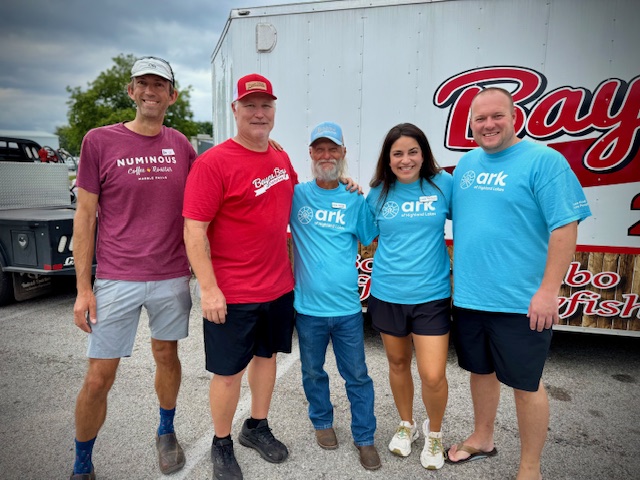
What words of wisdom would you offer to similar organizations or churches facing a natural disaster or community crisis?
KEVIN: My immediate response is: the Church is the answer. We often rely on government, but the opportunity to mobilize the church in these situations is truly the solution. We’ve seen God show up repeatedly when we and the churches get out of our own way and let God work. It’s about a rising tide lifting all ships. We must remove ego, focus on loving and serving people more efficiently, without concern for who gets credit or money. When we do that, Jesus is glorified, and God works through us to make a lasting impact. The biggest piece of advice is to do whatever you can to let the church be the church.
